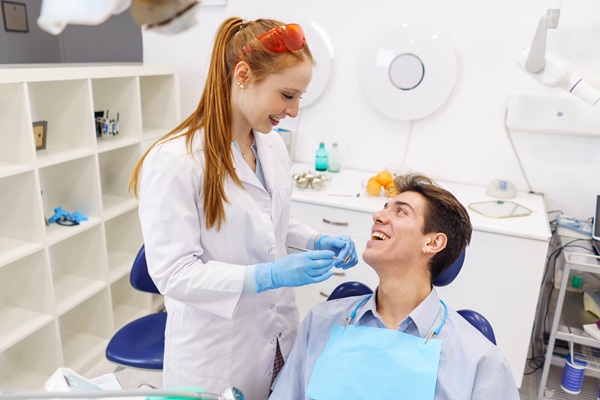General Dentistry Tip: When You Should Be Concerned About Halitosis

Halitosis is the general dentistry term for chronic bad breath, which means it is constant and does not go away. Although it may be surprising, a lot of people struggle with halitosis every single day. Thankfully, in general dentistry, there are a lot of ways to manage and treat the condition.
Halitosis in general dentistry
Below is an overview of what a general dentist has to say about halitosis, including warning signs and when to be concerned. This information is important to review as everyone struggles with bad breath from time to time.
Warning signs and when to be concerned
Halitosis shows itself very easily as it is not hard to notice. Outlined below are some of the warning signs that a general dentist says to look out for.
- If the breath is still bad even after oral hygiene
- Upon waking up, if the breath is extremely odorous
- When the breath does not change after using mouth wash
As surprising as it is, halitosis is actually hard to notice. A lot of people that struggle with bad breath do not actually realize that they struggle with it. Unfortunately, other people may notice it before the actual person does, which can be hard to deal with. However, general dentists can help!
Treatment in general dentistry
Halitosis is treated in different ways depending on the patient, as there are a few factors that determine what type of treatment is necessary. The most common way that halitosis is treated is through prescription mouthwash. However, general dentists will also recommend the following:
- Diet changes, as certain foods can enhance odors in the mouth. Foods such as fish, onions, and garlic should be avoided at all costs
- Brushing and flossing twice a day or after every meal to rid the mouth of any food debris
- Rinsing the oral cavity with mouthwash or saltwater. Saltwater is a natural disinfectant that can be used multiple times a day
- Having the nasal cavity checked for an infection. Sinus infections can lead to drips in the throat, which can travel up through the oral cavity
- Changing toothbrushes frequently, even as often as once a month. Toothbrushes hold bacteria, which can cause bad breath
In the event that the recommendations that are listed above do not help with the halitosis, it is important to go back to the general dentist for another visit. A deeper evaluation of the halitosis and treatment plan can be performed, which will help determine what steps to take next.
Find out more today
When it comes to halitosis, it is always good to consult with a general dentist. Any warnings signs can be checked out by the dentist, which can then lead to a diagnosis and treatment plan. Additionally, if any questions or concerns about halitosis or what is involved in treatment need to be addressed, the general dentist can help. To learn more or to get scheduled for an appointment, reach out today.
Request an appointment here: https://www.mynewnandentist.com or call Perry Street Dental at (770) 400-9933 for an appointment in our Newnan office.
Check out what others are saying about our dental services on Yelp: General Dentist in Newnan, GA.
Related Posts
Daily oral hygiene is one of the most important things that a general dentist focuses on. Without a good oral hygiene routine, individuals are more likely to develop cavities or gum disease, both of which require treatments to solve. Having a good understanding of important daily oral hygiene can go a long way. Keep reading…
Professional teeth cleaning in general dentistry is an essential part of maintaining good oral health. However, some patients are curious to know if they can cause damage to their teeth. While it is rare, understanding the possibility can be helpful.Individuals who undergo professional teeth cleanings on a regular basis may be at risk of weakening their…
Dental cleaning is a huge part of routine check-ups. The procedure involves using a scaler to scrape off tartar and plaque deposits from teeth surfaces. Plaque is the sticky film that builds up on teeth, and it hardens into tartar when left on teeth surfaces for a few days. Both make you more vulnerable to…
Professional dental care is an important part of keeping your teeth shiny and healthy. However, routine dental care at home can make the results last longer. Daily habits in between regular dental appointments support your long-term oral health and ensure a bright, confident smile.Consistent and effective daily cleaning is a foundation of routine dental care.…
